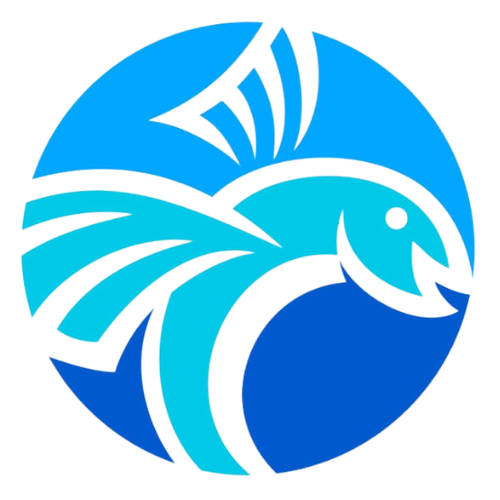Anderson 'Rogie' Kinch (Fisherfolk Organisations)
Anderson “Rogie” Kinch was born on July 19th, 1955. His mother died when he was very young, leaving him to be raised by his father, an Oistins-based fisherman. From when he was six years old, his father often took the young Anderson out on fishing trips with him, teaching him how to operate the boat and to fish. When Anderson was 11 years old, he was allowed to take the boat out with his friends to fish on weekends.
Anderson fell in love with fishing and from that young age, deciding that he wanted to be a professional fisherman. Most would probably have believed that this would just be a passing phase when the young Anderson passed the Common Entrance Exam to attend the then Boy’s Foundation School, this at a time when such an achievement was expected to lead to an academic profession, the famous clichéd mantra of becoming a doctor or lawyer. However, this was not the case for him. Despite having the academic abilities to complete his studies at Foundation, where he also earned the nickname “Terogie” later shortened to “Rogie,” he still set his sights on becoming a professional fisherman.
After leaving Foundation, Rogie attended the Samuel Jackman Prescod Polytechnic, as it was then called, to study Diesel Engine Mechanics, earning a City and Guilds certification. During the years following he captained and fished on several boats until in 1986 when he went to Canada to attend a training course in navigation. By that time, he was captaining fishing boats owned by Chally Jones including the first longliner “Paddy Bird”. From 1988, Rogie was an obvious choice for Chally to recruit as crew on the American longliners for which Chally was the local agent. With his training completed, Chally put him in charge of his longliners and in 2003, Rogie managed to purchase one of Chally’s tuna longline vessels, the “Danielle Amanda”, which he aptly first renamed “Sweet Inspiration”.
By that time Rogie had gained the reputation of being a wise, outspoken and valued leader in the local fishing community. In this context Anderson was a founding member of the Oistins Fisherfolk Association in 1997 and served the Association in rotating leadership roles of president and vice president. Among other things, Rogie was instrumental in the setting up of the radio room at the Berinda Cox fish market and having control of the fuel pump transferred to the Fisherfolk Association as a means of assisting in its financing. Anderson also served on the executive board of the Barbados National Union of Fisherfolk Organisations (BARNUFO) from its founding in 1999. From its reinstitution in 1995, Rogie served on the Fisheries Advisory Committee, easily working with scientists and often collaborated with researchers from Bellairs Research Institute, the Centre for Resource Management and Environmental Studies (CERMES) and from other agencies including the Fisheries Division.
From 1995, Rogie became a regular and well-respected participant at the annual meetings of Gulf and Caribbean Fisheries Institute (GCFI), where he articulated his position and advised in relation to the several fisheries-related topics and as such cogently offering the invaluable perspective of fisherman to the discussions. In addition to his verbal presentations, Rogie also authored or co-authored papers published in the GCFI proceedings.
Among other things, Rogie clearly understood the need for and promoted restraint in fishing to ensure the conservation of fish resources to promote sustainable fisheries. In this regard, he tirelessly campaigned for strict legislation that would help protect the marine resources of Barbados. He also championed the participation in research and in the management decision-making processes. Rogie was awarded the Gladding Memorial Award in 2005, in recognition of his outstanding contributions to sustainable management of fisheries and marine resources in the Gulf and Caribbean Region.
Rogie was a key member of a small, multidisciplinary team composed of scientists, lawyers, diplomats, and experts in maritime law and hydrography. This team was tasked by then-Prime Minister Owen Arthur with resolving Barbados' maritime boundary and fisheries disputes with Trinidad and Tobago in the mid-2000s.
Rogie, along with the late Angela Watson, were tasked with advising the deliberations from the important perspective of the fishing community. Rogie commendably fulfilled this role, and with the assistance of his insights, Barbados obtained a good result from the arbitration. After settlement of the Barbados maritime boundary with Trinidad, almost all of Barbados’s maritime boundaries with its neighbours were established, allowing the establishment of our Exclusive Economic Zone and thus our maritime claim of nearly 187, 000 km2.
In 2018, the Government of Barbados recognized Rogie’s sterling contributions to the Fishing Industry by awarding the Barbados Service Medal. Rogie died in June 2023. Until his death he remained in friendly contact with the members of the arbitration team and in an e-mail that he had sent the lead council on the team, Robert Volterra, Rogie shared that his participation in its work “made me feel like I did something to help the future Barbados, the younger people and the fishermen. I was proud.” However, that statement is not applicable to his work with the maritime boundary delimitation process but is justly more widely applicable to Rogie’s lifetime achievements. It is we who are proud to have known and worked with him.

